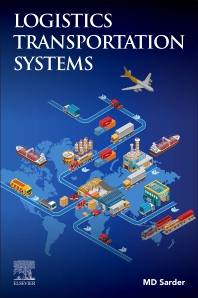Books in Social sciences
Books in Social sciences
The Social Sciences collection forms a definitive resource for those entering, researching, or teaching in any of the many disciplines making up this interdisciplinary area of study. Written by experts and researchers from both Academic and Commercial domains, titles offer global scope and perspectives.
Key subject areas include: Library and Information Science; Transportation; Urban Studies; Geography, Planning, and Development; Security; Emergency Management.

Future Directions in Digital Information
Predictions, Practice, Participation- 1st Edition
- October 24, 2020
- David Baker + 1 more
- English

Data-Driven Traffic Engineering
Understanding of Traffic and Applications Based on Three-Phase Traffic Theory- 1st Edition
- October 23, 2020
- Hubert Rehborn + 2 more
- English

Smart City Citizenship
- 1st Edition
- October 23, 2020
- Igor Calzada
- English

Freight Transport Modeling in Emerging Countries
- 1st Edition
- October 16, 2020
- Ioanna Kourounioti + 2 more
- English

Logistics Transportation Systems
- 1st Edition
- October 15, 2020
- MD Sarder
- English

Shooting Incident Reconstruction
- 3rd Edition
- October 10, 2020
- Michael G. Haag + 1 more
- English

Electric Vehicles for Smart Cities
Trends, Challenges, and Opportunities- 1st Edition
- October 6, 2020
- Evanthia A. Nanaki
- English

Climate Change Adaptation for Transportation Systems
- 1st Edition
- September 26, 2020
- Michael A.P. Taylor
- English

Management of IOT Open Data Projects in Smart Cities
- 1st Edition
- September 22, 2020
- Cezary Orlowski
- English

Smart Cities for Technological and Social Innovation
Case Studies, Current Trends, and Future Steps- 1st Edition
- September 21, 2020
- Hyung Min Kim + 2 more
- English